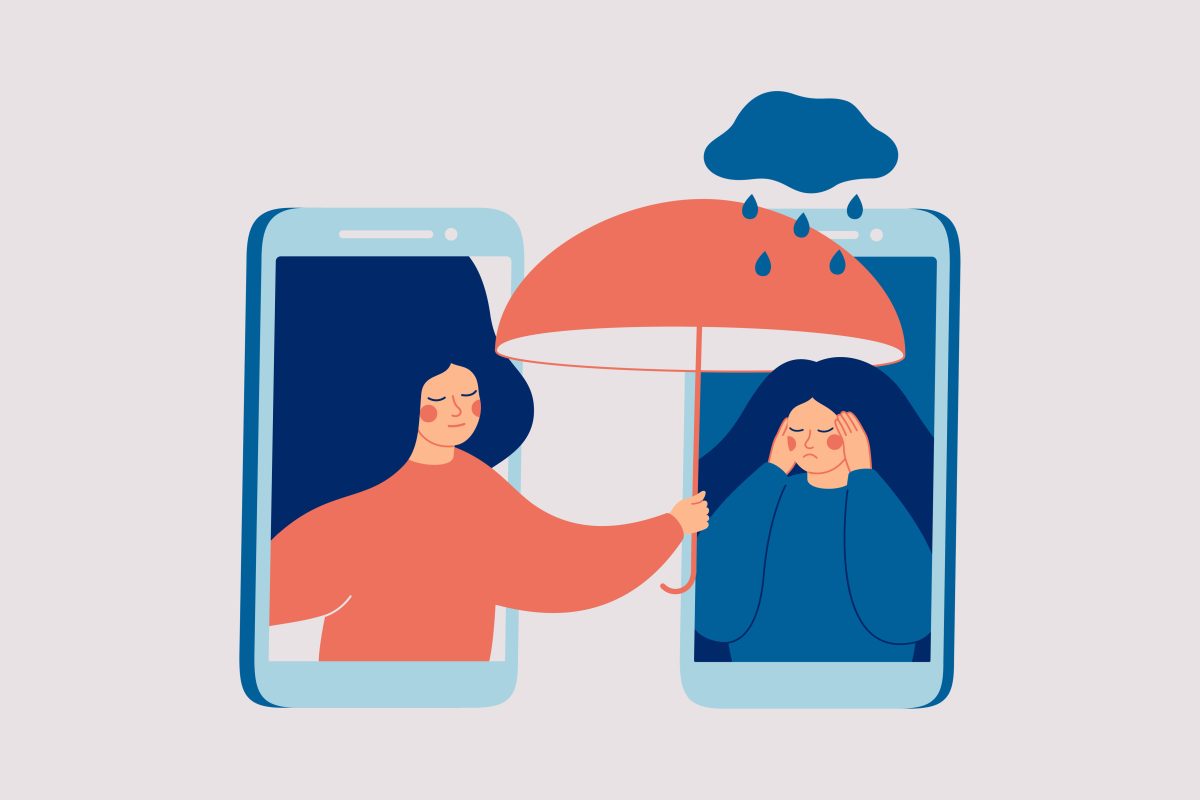Social media surrounds our everyday lives. Many of us check our accounts hourly. Perhaps without even realizing it, though, social media is affecting our mental health in a negative way.
For one, social media can trigger mental health symptoms. Social media can promote negative experiences of isolation, fear of missing out (FOMO), social media addiction, depression and anxiety. These are only a few of the many negative effects caused by social media, and many of us are experiencing them in our everyday lives.
The Cybersmile Foundation, a nonprofit organization that focuses on digital wellbeing, conducted a study in 2022 on the negative effects of social media. As many as 89% of respondents ages 16 to 24 said that social media negatively affected their mental health. A large percentage felt like social media has made them feel pressured to be perfect, and it has negatively affected the way they feel about their body.
Social media often creates unrealistic body standards that can make people feel bad about themselves. In reality, a lot of the images we see on social media are photoshopped, have filters, or have been edited. This creates a false reality that can create low self-esteem in both men and women. In response, Traci Pedersen of PsychCentral advises, “Understanding how certain content can affect your relationship with your body may help you decide which profiles and platforms best support your well-being.”
Social media has been a negative experience for me. I often compare myself to others, whether it is my appearance or lifestyle. I also get FOMO when I see others out having a good time. However, I have learned that people only share the highlights of their life. I, for one, partake in only sharing positive things on social media to archive my good memories.
Still, FOMO is a big part of my need for social media. I tend to check social media multiple times throughout the day. I feel like I have a constant need to check my phone or else I am missing out. It has become a bad habit for me. At the same time, I feel like scrolling on social media is a complete waste of time because I could be doing something productive. For example, I could be doing homework, cleaning my room or reading a book instead. It is easy to lose track of time and procrastinate when scrolling on social media.
My screen time is about five to six hours per day consisting of social media or doing computer work. Comparitech states, “The average American spends over two hours a day on social media and seven hours a day for screen time.” Too much screen time, though, can affect a person’s sleeping schedule and mental health. According to Time, “Excessive screen time has shown to have negative effects on children and adolescents. It’s been linked to psychological problems, such as higher rates of depression and anxiety, as well as health issues like poor sleep and higher rates of obesity.”
I personally spend the most time on YouTube or TikTok. I like to watch lifestyle videos on YouTube and funny videos on Tik Tok. These keep me the most entertained, so that’s why I keep going back. I still find myself using these apps even when I know I should be doing other things, and it has become addicting. Especially on Tik Tok because the videos are short and never ending. It also has to do with the dopamine that makes me keep coming back.
When I get lonely, I turn to social media, thinking it will help me. In actuality, filling in the gap of loneliness with social media only makes the loneliness worse. According to Kaiser Permanente, “researchers found that people turn to social media more when they’re feeling lonely. But, surprisingly people felt worse after spending time on social media.” The study found this was due to social comparison, the act of comparing oneself to others.
Even relatively little time spent on social media can have a negative impact on us. The American Osteopathic Association is an organization established to promote public health. The AOA found that “spending just two hours a day on social media escalates the risk of developing depression and anxiety, with extended usage linked to increased suicidal ideation and attempts among adolescents.” These effects of social media are scary and alarming.
When I am not using social media, I feel more fulfilled with my life and at peace. It makes me feel more free and forces me to go out and do things with my life. I think it’s important that everyone is aware of their screen time and how it is affecting us mentally. Social media can be a dark place for our mental health, so it is important we all realize that and take care of our mental state.






